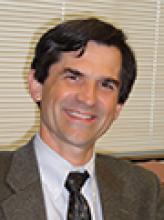The Aug. 2 issue of the Annals of Internal Medicine has a provocative article that demonstrates a paradox of hospitalist medicine: Inpatient stays were efficient and shorter, but hospitalist patients used more services after discharge and more often wound up in the emergency department or were readmitted.
Clearly, there is a range of practice styles for hospitalists. This study was less an efficacy study (ideal practice) and more of an effectiveness assessment (outcomes in daily practice). It raises issues that are being talked about over coffee in many parts of the country regarding how well hospitalists integrate their care into the long-term management of their patients.
Hospital medicine has attracted many physicians for its higher salaries and fixed hours. While many clinicians are patient-centered, others are not as attentive to hand-offs and transition issues. The doctor-patient relationship becomes transactional: It is a brief period of intensive service that ends after discharge. This could be worsened by rotations that result in several days on followed by several off. Continuity of care becomes a function of the schedule; picking up the pieces is a task for the next person at the next practice site.
In my area, physicians have balked at the notion of being identified for follow-up contact by receiving health professionals. I have heard similar observations by colleagues in other parts of the country. At some point, the fragmentation becomes less a systems issue and one of intrinsic professionalism: What does a physician owe patients when they are no longer directly on your rounding list? Primary care physicians assume longitudinal care of patients, and many have fled that "uncompensated" obligation to the more lucrative and demarcated role of an institutional provider.
The issues raised in the Annals are the beginnings of a new conversation that will become more prominent as we drift toward episodes of care and Accountable Care Organizations for reimbursement of health professional teams and not individual providers.
William E. Golden, M.D., is professor of medicine and public health at the University of Arkansas for Medical Sciences, Little Rock, where he served as director of the division of general internal medicine for nearly 20 years. He is currently the medical director, Arkansas Medicaid Enterprise at the Arkansas Department of Human Services.

